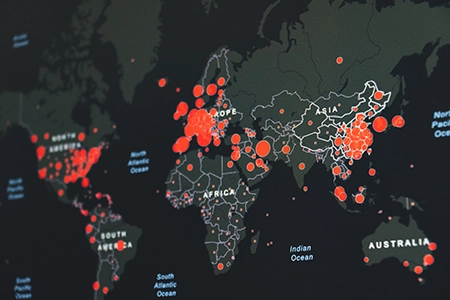Welcome to our comprehensive FAQ on website localisation, a vital process for businesses and organisations aiming to expand their reach to international audiences. In this digital age, having a website that resonates with a global audience is more crucial than ever. This FAQ delves into the intricacies of website localisation, exploring its importance, the challenges involved, and best practices for effective implementation. From understanding the differences between translation and localisation to mastering multilingual SEO, our guide is designed to provide valuable insights for anyone looking to make their website truly global. Whether you’re a business owner, marketer, or web developer, these questions and answers will equip you with the knowledge to navigate the world of website localisation successfully.
What is Turkish Localisation, and How Does It Differ from Translation?
Turkish website localisation is the process of modifying a website to suit the preferences and expectations of Turkish users. This involves translating the website’s content into Turkish and considering cultural elements that impact how information is understood and engaged with. For example, it includes adapting visual content, selecting culturally appropriate images, and ensuring that any idioms or expressions make sense to the Turkish audience. Additionally, localisation involves technical adjustments, such as displaying prices in Turkish lira, using the local date and time formats, and ensuring compliance with Turkish legal requirements, like privacy laws.
On the other hand, translation focuses strictly on converting written text from one language to another. While accurate translation is crucial in Turkish website localisation, it is only a part of the larger process. Localisation looks at the entire user experience, ensuring the website feels as if it was built for Turkish users from the ground up. For example, certain colours, symbols, or design elements in Turkey might have different connotations than in other countries. By addressing these subtle but important details, Turkish website localisation helps businesses connect with local users on a deeper level, building trust and engagement.

Are you looking to localise your website?
Look no more. With over 20 years of experience in Turkish-English and English-Turkish localisation of websites, we’re here to assist you. Regardless of programming language, whether ASP, C, or Phyton, and irrespective of the architecture, whether Linux or Windows-based, we are well equipped to solve all your localisation problems. Click “Get a Quote” to start your localisation journey with us.
Why Is Turkish Localisation Vital for Reaching International Audiences?
Turkish website localisation is essential for businesses looking to reach and engage Turkish users successfully. A one-size-fits-all approach rarely works in global markets, and localisation ensures that a website is tailored to meet the Turkish audience’s unique cultural and linguistic needs. By adapting not just the language, but also design elements, images, and functionality, businesses can provide a user experience that feels personal and intuitive. This is critical in building trust with Turkish users, who will be more likely to engage with a website that feels familiar and speaks to their cultural context.
Localisation is more than just translating words—it’s about creating a seamless experience that resonates with local users. For Turkish audiences, this could mean anything from presenting the website in a left-to-right reading format, using culturally appropriate colours and imagery, to displaying prices in Turkish lira and providing local payment methods. When Turkish users feel that a website understands their needs, it increases the likelihood of engagement, higher conversion rates, and ultimately greater brand loyalty. In today’s globalised market, Turkish website localisation can give businesses a significant competitive edge by making their offerings more accessible and appealing to this key regional audience.



